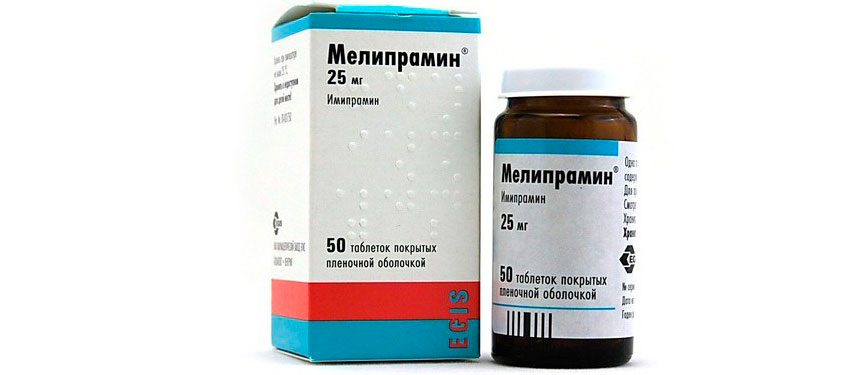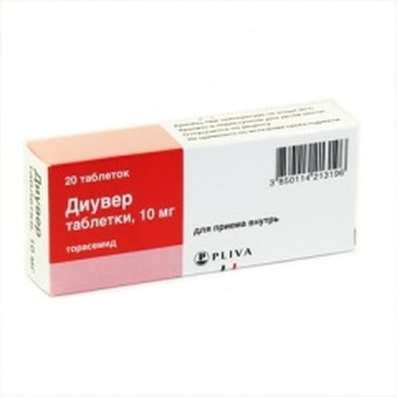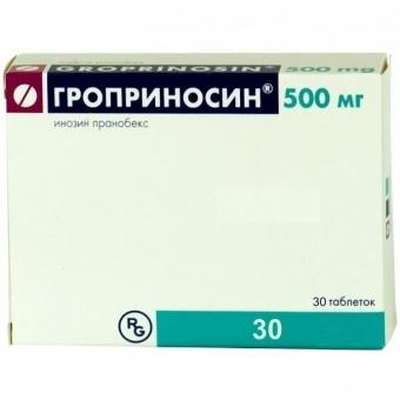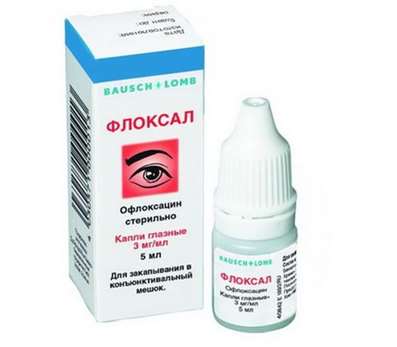Melipramin - instructions, dosage, side effects, analogs
10 Apr 2019
Antidepressant: Melipramin
Active ingredient: Imipramine (imipramine)Analogs: Venlaksor, Mirtazapin Sandoz, Simbalga, Velaxin, Prefaxin, Remeron, Mirzaten, Esprital 45, Melitor, Deprim Forte, and others.

Melipramine (imipramine) belongs to the so-called tricyclic antidepressants. The mechanism of its action is based on the inhibition of reuptake of serotonin, noradrenaline and dopamine in the brain. Long-term use of melipramine (imipramine) has a beneficial effect on adrenergic and serotonergic transmission, and also promotes the restoration of appropriate systems whose function was impaired during depression. Has a distinctive stimulating effect, brings a feeling of vivacity, relieves the feeling of anguish. Improves mood, removes motor retardation, normalizes sleep, helps to get rid of feelings of anxiety, increases both mental and general tone of the body. Gives a positive effect with bulimia. Helps in overcoming depressions of varying severity and etiology. The effect of the drug increases gradually. As a rule, marked improvement occurs after 1-3 weeks of treatment, a maximum - in a month.
Indications for use:
- treatment of various depressions, varying degrees of severity and etiology: asthenodepressive syndrome accompanied by motor retardation, endogenous (manic-depressive psychosis in the stage of depression), involuntary, reactive, alcoholic, climacteric depressions, as well as depressive states accompanying neuroses and psychopathy;
- treatment of panic disorder (i / m administration);
- treatment of obsessive-compulsive disorders (IM introduction);
- prevention of migraines and headaches;
- treatment of chronic pain syndrome: pain in cancer patients, atypical facial pain, post-traumatic - neuropathy, postherpetic neuralgia, diabetic neuropathy and other peripheral neuropathies;
- treatment of bulimia nervosa;
- bedwetting (in children only from the age of 6 years).
Contraindications: Hypersensitivity to the components of the drug or tricyclic antidepressants in general, the state of acute alcohol poisoning, poisoning with any psychotropic drugs, simultaneous reception of drugs-inhibitors MAO (it is necessary to sustain a pause, at least 2 weeks). In addition, imipramine should not be taken in case of serious liver / kidney disease / insufficiency, cardiovascular diseases, disorders in the genitourinary system (such as atony of the bladder and prostate adenoma). It is not recommended to take the drug with closed angle glaucoma, conditions characterized by an increased risk of seizures, as well as during pregnancy or lactation. It is forbidden to administer a solution of melipramine (imipramine) to people suffering from thyrotoxicosis, hyperthyroidism, and diabetes mellitus during decompensation.
Dosage and administration: In order to reduce the irritating effect of melipramine (imipramine) on the gastric mucosa, the drug should be taken after a meal.
Dosage is selected individually. Treatment should begin with taking a minimal amount of antidepressant followed by an increase until the desired effect is achieved.
For adults, the minimum daily dose is 25-75 mg. This amount of melipramine can be taken as a whole, or breaking into 2-3 doses. If necessary, it is possible to gradually increase the dosage (every day by 25 mg) to 150-250 mg / day. If the effect does not occur, then, in the absence of serious side effects, the daily dosage may increase to the maximum 300 mg. With mild forms of depression, a 4-6-week course of treatment is sufficient. At the end of the course, the dosage should be gradually reduced (by 25 mg every 24 hours) to the maintenance dose (25-100 mg / day). It should be remembered that too early withdrawal of the drug in most cases leads to the resumption of depression.
In the stationary treatment of severe forms of depression, the drug begins to take in the form of intramuscular injections. The required amount of the drug is 25 mg / day. With each following day, the dosage should be uniformly increased. The dose is adjusted to 100 mg / day by the 6th day of treatment (the maximum dosage is 200 mg / day), and, starting from the seventh day, the injections are gradually replaced by a preoral method of drug use. From the 13th day onward, this transition must be fully completed. In case of aggravation of the patient's condition, it is necessary to return to injections. As a rule, the full course of treatment of severe forms of depression lasts from 3 to 6 months. To treat elderly patients and children, lower doses of antidepressant are recommended.
Children should take imipramine inside after eating. The initial dosage is 10 mg per day. Within the next ten days, the dose is increased depending on the age of the patient. For children 6-7 years, this amount is 20 mg / day, 8-14 - 20-50 mg / day, and for children over 14 years - 50 mg / day or more. The maintenance dose for children is half that of an adult.
In the treatment of enuresis at the age of 6-7 years with a weight of 20-25 kg, a dosage of 25 mg / day, 9-12 years with a mass of 25-35 kg is 25-50 mg / day, for children over 12 years, a 50- 75 mg / day. It must be remembered that the dosage should be prescribed at a rate of 2.5 mg per 1 kg of body weight of the child. If a child urinates in bed in the evening, it makes sense to divide the dose of melipramine (imipramine) at daytime (16-18 hours) and evening (20-21 hours) receptions. Excessive dose increase does not give effective results. The course of treatment for enuresis lasts no more than 3 months, with the observation of improvement it is necessary to gradually stop taking the drug.
Elderly patients are advised to start taking melipramine (imipramine) with 10 mg per day, which can be increased to 30-75 mg / day. The maintenance dose for patients of this age group is half the dose for adults.
Side effects: Among the most common side effects are: drowsiness, tinnitus, weakness, headache, dizziness, agitation, impaired concentration, yawning, insomnia, accommodation, dry mouth, constipation, tachycardia, arrhythmia, enlargement of the mammary glands , both decrease and increase of sexual desire, itching, rash, decreased sweating, increased intraocular pressure.
Storage conditions: Store at room temperature not more than 25 ° C, in a dry, darkened, inaccessible place for children.
Conditions for selling from pharmacies: Melipramine (imipramine) is dispensed on prescription.

 Cart
Cart





